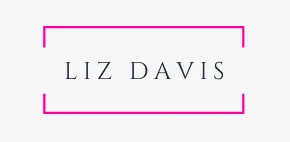Carbs seem to be highly controversial at the moment. Some guidelines suggest that half of our food intake should be in the form of carbs, but others suggest that carbs are the source of many health problems from excessive weight gain, to diabetes and a whole host of other diseases. The arguments from both sides seem to be valid and ultimately whether you should eat carbs, and how often, depends largely on the individual. So, low carb diets, are they good for you? Read on to find out.
Why do we need to eat carbs?
The main purpose of carbohydrates in the diet is to provide energy, and most carbs get broken down or transformed into glucose to fuel the body. The molecule which delivers this energy is called adenosine triphosphate (ATP).
Any excess carbs can be stored by the body as glycogen for later use.
Low carb diets – different types of carbs
Sugars: You may also hear of these called ‘simple carbs’. These are found as added sugars in foods, in fruit juice and packets of white and brown sugar, for example.
Starches: These are long chains of glucose molecules, which eventually get broken down into glucose in the digestive system. When you eat ‘carbs’ these are the ones that are the best for your health – you want the ‘wholegrain’ varieties though, not ‘white’ versions. More on that in a second.
Fibre: This does not provide energy directly, but it does feed the friendly bacteria in the digestive system. These bacteria can use the fiber to produce fatty acids that some of our cells can use as energy.
Low carb diets – which carbs to avoid?
Well, there are plenty of studies around which demonstrate time and time again that refined carbohydrates are associated with dozens of health problems, ranging from obesity to type 2 diabetes.
They tend to cause major spikes in blood sugar levels, which lead to a subsequent crash that can trigger hunger and cravings for more high-carb foods. This is the blood sugar rollercoaster that many people are familiar with.
Refined carbs have had almost all the goodness taken out of them, including any minerals, vitamins and fibre. In other words they are empty calories.
Examples of carbs you’d be better off avoiding include –
- Fizzy drinks
- Fruit juices
- Pastries
- ‘White things’ – bread, pasta, rice etc
Sugary breakfast cereal
Which carbs should you eat?
Whole food sources of carbohydrates are packed with vital nutrients and fibre, and don’t tend to give rise to the dreaded blood sugar rollercoaster, particularly when combined with good quality protein.
If you’re worried your diet is impacting your gut health, I’d highly recommend downloading my online course The Ultimate Gut Health Programme to help support both your digestive sysem and hormone health, whilst avoiding triggering symptoms.
It’d be impossible to include all you need to know in one blog, but the programme will have all you need to know to ensure you’re soothing your digestive system, whilst eating delicious and filling foods.
Examples of whole carbs include –
- Whole fruits
- Vegetables
- Legumes
- Potatoes
- Sweet potatoes
- Whole grains (rice, bread etc)
So what’s the deal with low carb diets?
These types of diets restrict carbohydrates, while allowing plenty of protein and fat. Numerous studies have now shown that low-carb diets are much more effective for weight loss than the standard low-fat diet that has been recommended for the past few decades.
These studies show that low-carb diets cause more effective weight loss and lead to greater improvement in various health markers, including cholesterol, blood sugar and blood pressure.
But they certainly don’t suit everyone. Some people feel dreadful when they eat a low carb diet, whereas some people flourish, even on very low carb diets such as the ketogenic diet.
In fact, in certain health conditions a ketogenic (very low carb intake) diet has been proven to be very effective.
If you’re going to look at dropping your carb intake that low always work with a professional to make sure you do it safely. I won’t talk about ketogenic and very low carb diets in this article, as that’s a whole different topic.
Low carb diets and gut health
What has been noted in recent studies, is that when people eat a low-carb diet it does tend to impact their microbiome ( bacteria balance) which potentially may give rise to issues – and not in a good way.
Once your gut has healed nicely the best way to keep it in great shape is by eating more of a Mediteranean-style diet.
So, for most people, which carbs should you focus on?
As a general rule, carbohydrates that are in their natural, fiber-rich form are healthy, while those that have been stripped of their fiber are not.
If it’s a whole, single ingredient food, then it’s probably healthy for most people, no matter what the carbohydrate content is.
How much ‘carb’ should you eat?
Your optimal carb intake will depend on many things, including –
- Age
- Activity levels
- Metabolism
- Gender
If you’re happy with your weight, overall health and energy levels then you’re probably eating the correct level of carbs for your needs. However, if you struggle with your weight, or any other aspect of your wellbeing, then your carb intake may well be worth a closer look.
As with many things nutrition related the whole carb situation is rarely black and white, or one size fits all. It’s the overall picture which needs to be looked at – not just one aspect. Remember we are all unique! Just because dropping carbs worked for one person, doesn’t mean it will work for you.
If you have a lot of weight to lose, or have health problems like metabolic syndrome and/or type 2 diabetes, then working with a professional to drop your carb intake safely will likely have huge benefits for you. This is why a personalised approach to nutrition is vitally imporant.
If you would like to speak to me about any aspect of your gut health, then please use this link to book into my diary for a FREE 30 minute chat so I can find out more about what is going on for you. Alternatively please use the ‘Learn More’ link below.
Free Mini Programme
Would You Like to Learn How to Fix Your Digestive Symptoms, Beat the Bloat and Feel Amazing?
1:1 Coaching Plans
Get Ready to Permanently Beat the Bloat, Soothe Your Digestion and Feel Amazing
Ultimate Gut Health Programme
Delicious, Filling & Inspiring ways to Become Symptom-Free, Soothe Your Gut and Enjoy Your Food Again!



